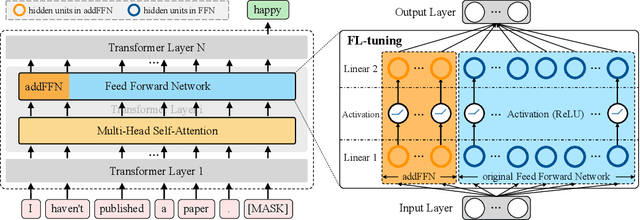Hongli Sun
MedOdyssey: A Medical Domain Benchmark for Long Context Evaluation Up to 200K Tokens
Jun 21, 2024Abstract:Numerous advanced Large Language Models (LLMs) now support context lengths up to 128K, and some extend to 200K. Some benchmarks in the generic domain have also followed up on evaluating long-context capabilities. In the medical domain, tasks are distinctive due to the unique contexts and need for domain expertise, necessitating further evaluation. However, despite the frequent presence of long texts in medical scenarios, evaluation benchmarks of long-context capabilities for LLMs in this field are still rare. In this paper, we propose MedOdyssey, the first medical long-context benchmark with seven length levels ranging from 4K to 200K tokens. MedOdyssey consists of two primary components: the medical-context "needles in a haystack" task and a series of tasks specific to medical applications, together comprising 10 datasets. The first component includes challenges such as counter-intuitive reasoning and novel (unknown) facts injection to mitigate knowledge leakage and data contamination of LLMs. The second component confronts the challenge of requiring professional medical expertise. Especially, we design the ``Maximum Identical Context'' principle to improve fairness by guaranteeing that different LLMs observe as many identical contexts as possible. Our experiment evaluates advanced proprietary and open-source LLMs tailored for processing long contexts and presents detailed performance analyses. This highlights that LLMs still face challenges and need for further research in this area. Our code and data are released in the repository: \url{https://github.com/JOHNNY-fans/MedOdyssey.}
FL-Tuning: Layer Tuning for Feed-Forward Network in Transformer
Jun 30, 2022



Abstract:Prompt tuning is an emerging way of adapting pre-trained language models to downstream tasks. However, the existing studies are mainly to add prompts to the input sequence. This way would not work as expected due to the intermediate multi-head self-attention and feed-forward network computation, making model optimization not very smooth. Hence, we propose a novel tuning way called layer tuning, aiming to add learnable parameters in Transformer layers. Specifically, we focus on layer tuning for feed-forward network in the Transformer, namely FL-tuning. It introduces additional units into the hidden layer of each feed-forward network. We conduct extensive experiments on the public CLUE benchmark. The results show that: 1) Our FL-tuning outperforms prompt tuning methods under both full-data and few-shot settings in almost all cases. In particular, it improves accuracy by 17.93% (full-data setting) on WSC 1.0 and F1 by 16.142% (few-shot setting) on CLUENER over P-tuning v2. 2) Our FL-tuning is more stable and converges about 1.17 times faster than P-tuning v2. 3) With only about 3% of Transformer's parameters to be trained, FL-tuning is comparable with fine-tuning on most datasets, and significantly outperforms fine-tuning (e.g., accuracy improved by 12.9% on WSC 1.1) on several datasets. The source codes are available at https://github.com/genggui001/FL-Tuning.
 Add to Chrome
Add to Chrome Add to Firefox
Add to Firefox Add to Edge
Add to Edge